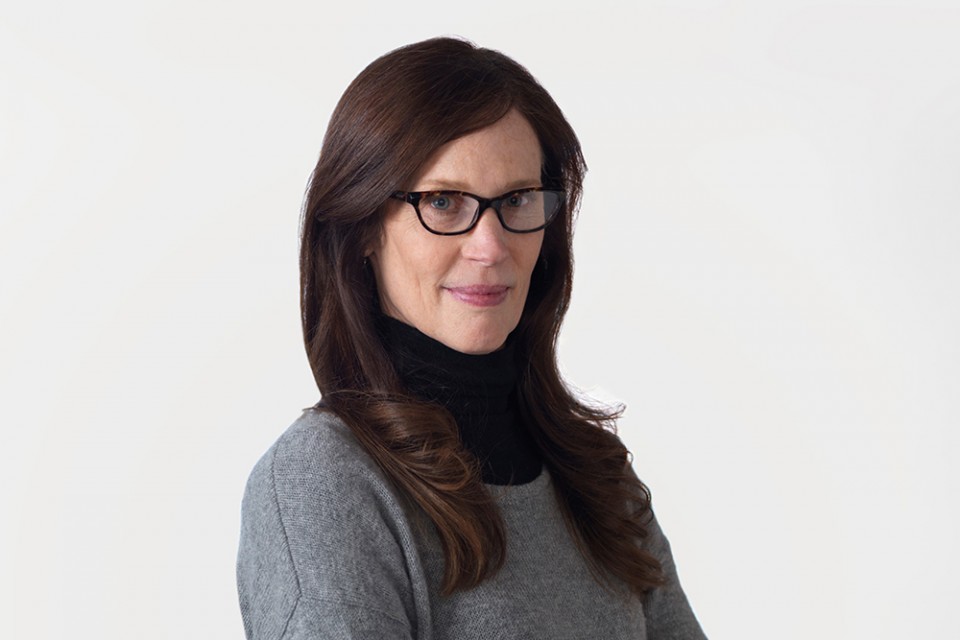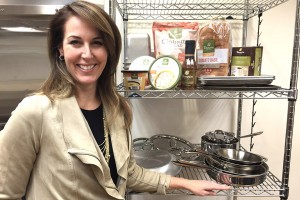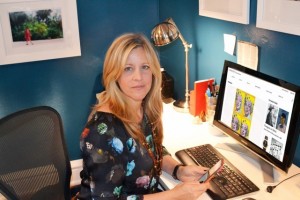Jennifer Guarino, VP at Detroit Based Shinola and Native Californian
Jennifer Guarino, a native Californian, made the move from another cold spot, (Minneapolis) to Detroit, the home of Shinola, precisely because she could see the terrific value in working for a company like that. It is the company that took the hallowed craft of watch-making and combined it with leather-making and bicycles, with a brand motto that their products are “ where American is made.’ She is now a VP in charge of leather goods.
In her interview, she waxes eloquently on what makes Shinola different (its music-filled factories, for one), why she and her boyfriend love Detroit so much, and the value of volleyball in helping her understand years later how to put into practice a winning mentality for Shinola. She also pays homage to her immigrant Italian grandmother, talks about the benefits of not being harried in the pre-work morning hours, and how she overcame not having an MBA to still emerge being on-the-money in a tense business situation. As if tall of that were not enough, she is also a founding member of the Makers Board Coalition, which is devoted to reinvigorating the industrial sewing field in America.
Can you tell the readers a little bit about yourself?
I have been in the fashion business for thirty years; I began as a fashion illustrator, but have spent the bulk of my career in a variety of roles in the leather accessories industry from designer to CEO, with a strong focus on domestic manufacturing. I recently relocated from Minneapolis to Detroit to work for Shinola. My boyfriend and I made the choice to live in the city, and we haven’t regretted it for a moment — we have fallen in love with Detroit. It’s a pioneering and vibrant place that keeps us endlessly engaged!
Other pursuits: I’m active in promoting maker and trade worker initiatives, both locally and nationally. I adore and believe in dogs. I am an island-hopper whenever I get the chance. I am a lover of music (sonos speakers reaching all rooms!); an independent/documentary film addict; and an admitted viewer of AFV, for just an occasional good laugh!
What does a day in your shoes typically look like?
No day is the same. I spend time on everything, from zooming in to the very fine details of manufacturing efficiencies to zooming out to the role Shinola can play in elevating the value we place on artisans in the trades, and creating better jobs for them in the U.S. It is really an incredibly wonderful job I have!
What 2-3 things do you do to prepare yourself before work and is there anything you try to accomplish everyday?
-
-
- I take the time to have a slow non-rushed breakfast and listen to the news. No matter how early my workday needs to start, I get up early enough to make this happen. I am not a rush-out-of-the-door-to-work person.
- I try to end my day by getting my email in-box to within 100 and by writing a fresh list to-dos.
-
What is the favorite part of your job?
Developing and growing our wonderfully non-traditional people-centric factory. Our factory doesn’t look, feel, or sound like any other factory I’ve owned, visited or worked in. Yes, we have an assembly line, but everyone knows every piece of leather is unique, so every piece is approached and treated that way in a non-assembly line sort of way. It is part process and part art. It shows in the quality and pride everyone has in the work they do, and it shows in the feel of the factory. It has a pace, a vibe (in fact there is music throughout) that visitors always remark on. It actually feels like a place you want to be. How many factories can you say that about?
What and who inspires you at work?
The American leather industry has been decimated over the last several decades, and with it we’ve lost a whole generation of skill. We’ve brought masters to Detroit to invest in teaching our industry’s future masters that otherwise wouldn’t be there. We have over 70 people now working with leather that had no experience working with it before. They love it. These new artisans are passionate about what they are learning, and the masters they are learning from. The masters are thrilled to be passing along their trade and thoroughly love the relationship that comes from teaching it to artisans. It’s a mutual appreciation. It is so easy to be inspired by them both.
How does your culture/background influence your work?
-
-
- My immigrant Italian grandmother and her son (my dad). They taught me gratitude – for everyday things, for simple things, for family and friends, for things thoughtfully made (homemade pasta)…and the people who make them. I think it’s why I prefer my desk be in the factory versus the office!
- Also, team sports. It is what makes me see the “why we cans” in everything versus “why we can’ts.” I never remember walking onto a volleyball court thinking about the ways we couldn’t win, only the ways we could. It didn’t mean we always won, but at least we learned something that might help us next time when we didn’t. I suppose in some way that’s part of the reason I can be tireless about my belief in the rebuilding of American manufacturing.
-
What has been your biggest obstacle in your career and how did you overcome it?
My former business partner and I purchased a 100-year-old leather company, which we were nurturing back from the brink of extinction when the 2008 recession hit — a punch that nearly took us out. After having to lay off 90% of our workforce, we began a hard fight back. We ended up hiring everyone back plus some.
We were able to grow at over 50% a year from 2009 until I left in 2013. It was the proudest years in my career, because it took incredible perseverance and passion by a whole team of people that didn’t give up. The most important lesson I learned was that all the finance people “in suits” (who almost succeeded in convincing me they were smarter than we were) were wrong. Even though I didn’t have an MBA, we did know our business better than they did. We just had to prove it by executing.
What are your most steadfast ‘don’ts’ rules regarding work and the workplace, and what are your most cherished ‘do’s’?
-
-
- As a manager I have an “open door” for people to complain, but it needs to be accompanied by a solution. Otherwise, door closed.
- Give credit to others; credit taken is a resource squandered.
- Ok to “disagree respectfully” – not “disrespectfully disagree.”
- Neglecting to tell someone when, why and how they aren’t meeting expectations is not being nice; in fact, it is unfair. Being nice is letting them know, and giving them the respect of the trust they will do something positive for themselves with the information.
-
What are the most important qualities of a good leader?
-
-
- Belief that we all have a need to be a contributing and valued part of something.
- Walking your talk.
- Humor – and mostly quickly about yourself.
-
How have mentors impacted your personal and professional development?
I have been fortunate to have mentors who have understood that personal and professional development is most powerful when they are not separate, but rather deeply connected. Their support and guidance helped me link what I do professionally with what makes me happy personally, so work isn’t drudgery or a façade for me. It has also so deeply imprinted the value of mentorship in me that when asked, I almost always find time to mentor– even if only over lunch.
What advice would you give to women starting their careers?
In the words of broadcaster Mika Brzezinski: “Know your worth.” If you aren’t clear and confident about your own worth, you cannot expect anyone else to be. It is not position of defense or offense; it is a position of leadership. This is a role that we’ve not been taught to expect, ask for, accept or have others expect or accept from us. Ironically, it’s one that we’re exceptionally well-suited for — so find successful leaders to learn from, and be mentored by both men and women.
TAGS: SharpSavvySignificant
 Interviewer Interview Prep
Interviewer Interview Prep Impactful Mentees
Impactful Mentees Benefits of a Mentor
Benefits of a Mentor Advice for First-Time Managers
Advice for First-Time Managers Overcoming the 18-month Itch
Overcoming the 18-month Itch Dressing for Your Style
Dressing for Your Style Interview Style Tips
Interview Style Tips Women's Stocking Stuffers
Women's Stocking Stuffers Gift the Busy Traveler
Gift the Busy Traveler Father’s Day Gift Guide
Father’s Day Gift Guide Airport Layover Activities
Airport Layover Activities Traveling & Eating Healthy
Traveling & Eating Healthy Travel Like a Boss Lady
Travel Like a Boss Lady The Dual California Life
The Dual California Life Gifts for Thanksgiving
Gifts for Thanksgiving Summer Reading List
Summer Reading List Top Leisurely Reads
Top Leisurely Reads New Year, New Books
New Year, New Books Life Lessons from a Sitcom
Life Lessons from a Sitcom Oprah, Amy or Amal?
Oprah, Amy or Amal?














